The views expressed in our content reflect individual perspectives and do not represent the authoritative views of the Baha'i Faith.
Partaking of knowledge and education is one of the requisites of religion. The education of each child is obligatory. If there are no parents, the community must look after the child. It is suggested that the childless educate a child.
It is incumbent on every one to engage in some occupation, such as arts, trades, and the like. We have made this–your occupation–identical with the worship of God, the true one. – Abdu’l-Baha, Divine Philosophy, p. 26.
What does an educational experiment from almost a half-century ago have to do with today?
In 1967, a devoted group of activists founded the Harlem Preparatory School for the purpose of preparing dropouts in central Harlem for college and careers, and to take their places in society as well-informed citizens. Through the concerted efforts of teachers, administrators, supporters, and the students themselves, Harlem Prep proved that these youth could achieve academic success and go on to higher education.
Today we still face the troubling reality of educating those who our traditional schools have failed to serve. A larger number of youth live in poverty than ever before. Poor neighborhoods still have poor public schools that limit the possibilities of their children. The dropout rate among minorities remains high, and their academic achievement lags behind that of their more affluent counterparts. Many cities continue to have deep pockets of poverty, including a seemingly permanent black urban underclass. Race, poverty, and educational failure often still seem to go hand in hand.
Do we need a “kickstarter” educational effort to lift our young people out of poverty, ignorance, and lack of opportunity? Is this goal even reachable?
Harlem Prep’s story shows us that yes, it can happen with a valid educational concept, motivated students, sustained funding and faculty and administrators who can think outside of the box.
I immigrated to the United States fifty years ago from Persia to seek educational and economic opportunity–and to flee religious persecution in Iran where the Baha’i Faith, my religion, is reviled by the Muslim clergy and their fundamentalist followers. The memory of being a second-class citizen helped me empathize with black Americans faced with white racism. Even as a new immigrant, I could see the effects of long-term racism on the lives of many black Americans, who so often seemed trapped in menial work, segregated sub-standard housing and blighted neighborhoods.
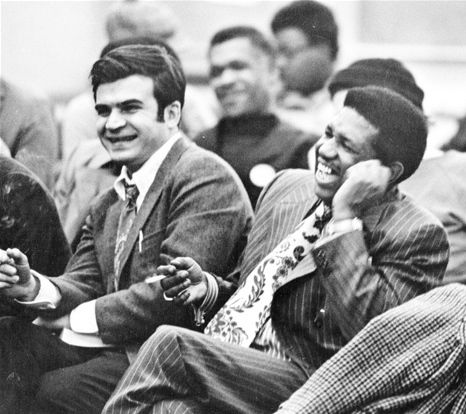
Hussein Ahdieh and Ed Carpenter
I became involved with Harlem Prep through my friendship with Ann and Ed Carpenter, who I knew through the Baha’i community. Ed had been appointed the headmaster of a new school, a “free school”, whose purpose was to prepare former “dropouts” for college. Still a university student myself, I eagerly contributed ideas during the conceptualization phase. When I completed my bachelor’s degree, I joined the faculty of Harlem Prep as a math teacher, and from there moved into the role of assistant headmaster. I can say unequivocally that my time at Harlem Prep was the most satisfying and purposeful job in my entire education career. While serving full time as an administrator, I completed my doctoral degree in education at the University of Massachusetts, focusing on alternative schools with Harlem Prep as a prototype.
Let me tell you why I loved my experience at Harlem Prep so much, using just a single example out of hundreds. One day an unwed teenage mother visited my office with her baby and her mother, whom I doubt was much over thirty. Standing in front of me I saw the potential for either another generation growing up in poverty; or a breakout life of accomplishment and fulfillment. Harlem Prep provided the way forward for this young woman, and many more students such as Janet MacDonald, who went from humble beginnings in Brooklyn to becoming an award-winning writer of children’s books and a resident of France.
I am proud and grateful to have been part of Harlem Prep’s contribution to the lives of young people.
In my book, I try to tell the history of Harlem Prep through the stories and challenges of those who made the schools a reality—founders, funders, teachers, administrators, and students, and the newspaper and journal articles that reported on this important project.
If you’re an educator, teacher, or someone involved in a “free school” or charter school, I hope this account inspires you to continue your important service.
If you’re a campaigner against multigenerational poverty, I invite you to examine how we tried to help those young people least likely to succeed.
If you’re a spiritual seeker, I hope you’ll explore the Baha’i teachings on education, which have inspired millions like me who want to help create a better world for everyone.


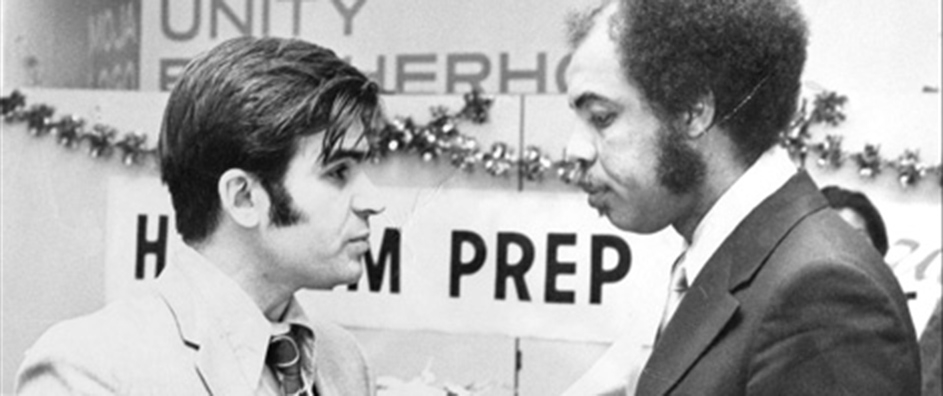
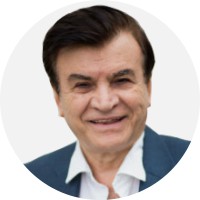
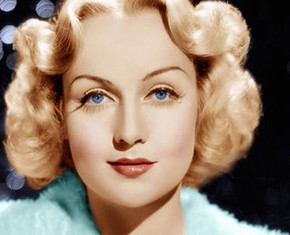
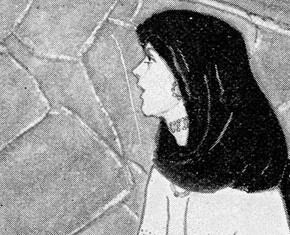
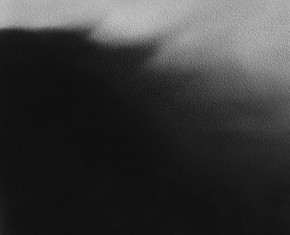









Comments
Sign in or create an account
Continue with Googleor